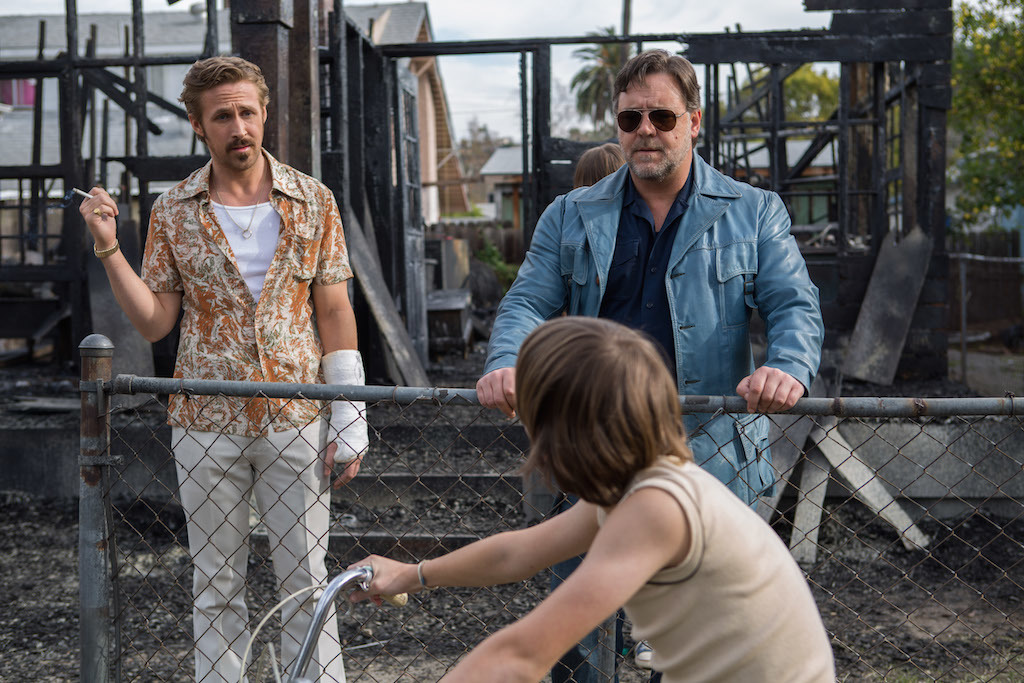
Ryan Gosling and Russell Crowe are both intense, brooding actors who have been known to take themselves a wee bit too seriously, so it’s surprising—and more than a little refreshing—to see them paired up in this goofy, profane buddy comedy. Even more surprising? They both have impressive comic chops, with Gosling in particular demonstrating a gift for physical comedy.
As is apparently the law for all “edgy” comedies these days, the film takes place in Los Angeles in the 1970s (I’m a bit tired of sideburns and wide lapels being a substitute for actual jokes, but maybe that’s just me). Gosling plays a dissolute private eye named Holland March. His wife has recently died, leaving him to care for his precocious tween-age daughter, Holly (Angourie Rice), as he runs his not-so-reputable practice. Mostly, he drinks, womanizes, and finds new ways to bilk his clients out of their money. Crowe’s Jackson Healy is an enforcer, hired by people to be their muscle, to punch out (or worse) stalker ex-boyfriends, drug pushers, and the like. He’s a tough, lonely guy who worries a lot that he’s not a good person.
The two men meet, inevitably perhaps, when Healy beats March up and very clinically breaks his arm (he tells him precisely which bones he’s about to fracture). March has been hired to find a possibly dead porn star and the search leads him to aspiring actress/activist Amelia, who has hired Healy to keep March (and others) off her trail. When Amelia goes missing, the two men team up to find her. Their fumbling, mostly (but not entirely) inept quest leads them all the way to a massive government conspiracy.
The Nice Guys was written and directed by Shane Black, who also wrote The Lethal Weapon movies. This does feel a bit like Lethal Weapon in a post-Tarantino world. The violence is casual, shocking—and almost invariably played for laughs. Two people fall of a roof. One lands in a pool, the other—splat!—explodes in a pile of blood on the pavement. A rotting corpse disrupts a dinner party. Someone is hurled through a plate-glass window. The film feels a bit like Lethal Weapon’s unleashed id.
But there’s some sentimentality, too. The Holly character is the best potty-mouthed, smarter-than-her-dad child sidekick since Tatum O’Neal in Paper Moon. She’s delightful, but if you can’t stand seeing a child in peril, you might want to steer clear. (March is a loving, but disgracefully bad father.)
There are several inspired gags, one involving a confrontation between March and Healy while March is sitting on the john, one where March attempts (in vain) to hide behind a rotating car at a car show, another where March stumbles across the aforementioned rotting corpse and is too drunk and panicky to form any words.
March and Healy aren’t great at their jobs—they more or less manage to fail upward—but they’re quite clearly better together. And Crowe and Gosling have a wonderful, gruff chemistry here, which is key. (Chemistry in buddy comedies is just as important as chemistry in romance films.) If this is the beginning of a Lethal Weapon style franchise for the two actors, count me in.
